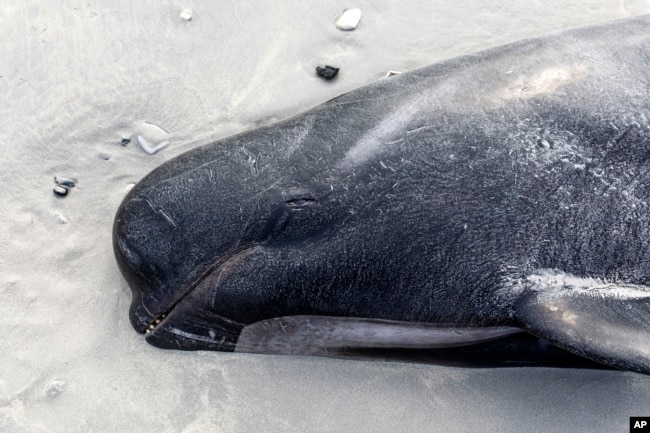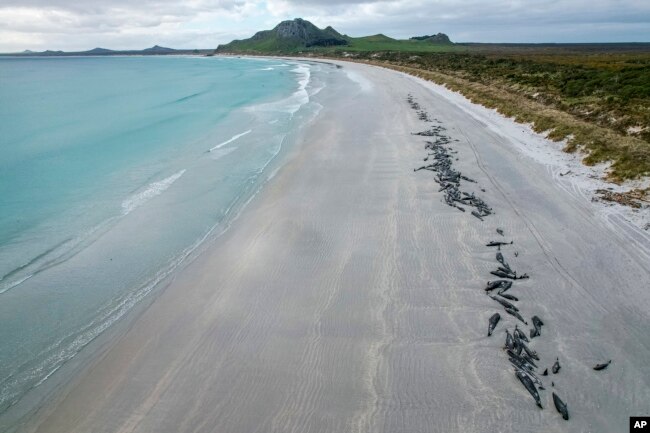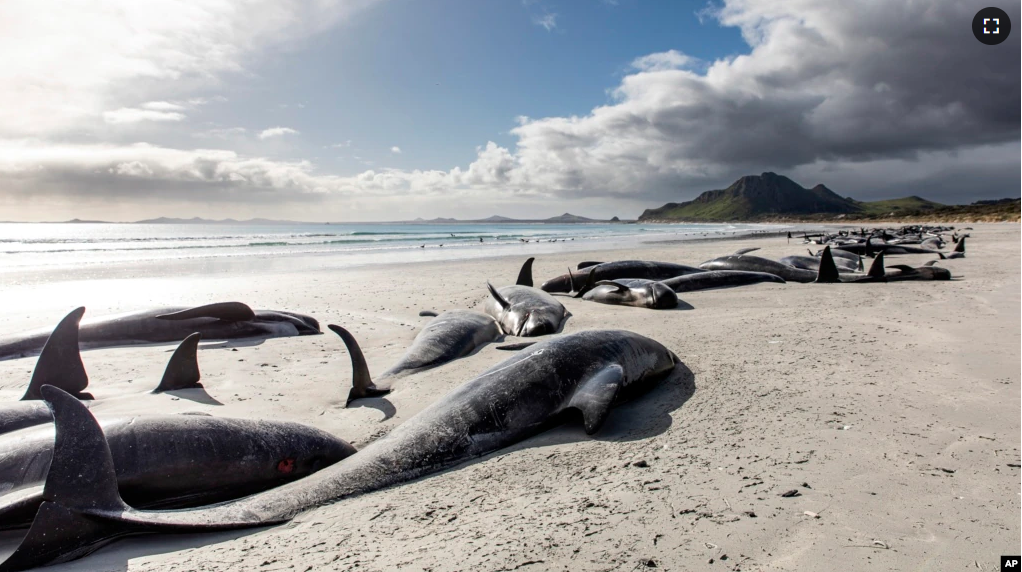Hundreds of pilot whales died this week on the beaches of the Chatham Islands, about 800 kilometers east of New Zealand.
It is the second large stranding of whales in recent weeks. About 200 pilot whales died in the Australian state of Tasmania in late September.
New Zealand officials said the islands are home to about 600 people. Rescue groups went to help but they could not get the whales back in the water. Many of them died naturally but others were euthanized because they could not be saved. At least 477 whales are believed to have died.
New Zealand’s Department of Conservation wrote about the stranded whales on Facebook.
“These events are tough, challenging situations,” the department wrote. “Although they are natural occurrences, they are still sad and difficult for those helping.”
Daren Grover works for a group called Project Jonah that works to rescue whales. He called the event a “heartbreaking” loss.

He said the islands’ distance from New Zealand and the presence of sharks in the water made it hard to help the whales.
Dave Lundquist is an adviser for New Zealand’s Department of Conservation. He said the department does not try to save whales on those islands because the sharks make it unsafe for both people and the whales.
He called euthanasia “the kindest option.”
Grover said the Chatham Islands are a place where whales go to find food. As the whales get closer to land, however, they can become confused.

Strandings of large groups of whales are common in the summer, scientists say.
Grover said the whales use a system called echolocation to find food and avoid barriers underwater. But as they get closer to land they can lose their place if the water level changes quickly.
“Before they know it,” Grover said, “they’re stranded on the beach.”
Grover said the whale bodies will not be moved. They will decompose naturally.
“Nature is the great recycler,” he said.
I’m Dan Friedell.
Dan Friedell adapted this story for VOA Learning English based on a report by The Associated Press.
________________________________________________________________
Words in This Story
strand –v. to cause something that is normally in the water to be stuck on land
euthanize –v. to kill to prevent suffering
challenging –adj. something that is difficult
option –n. a possible choice
confused –adj. unable to understand a situation
decompose –n. to slowly break down into a simpler form through a natural process
recycle –v. to make something new from something that has been used or worn out
